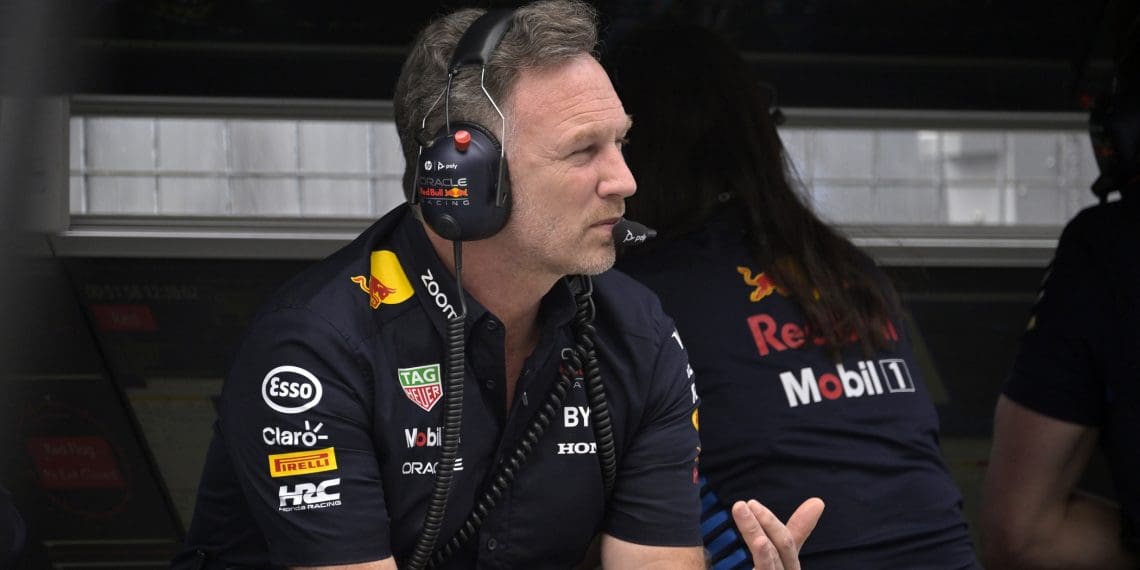The Red Bull-Honda era will forever be etched in Formula 1 history as one of the most dominant partnerships in the sport. But as 2026 approaches, with massive regulation shifts on the horizon, the battle of the power units is heating up—and Christian Horner is not buying Honda’s narrative of struggles.
With Honda Racing Corporation (HRC) boss Koji Watanabe publicly admitting that the Japanese manufacturer is facing challenges in developing its next-generation engine, Horner has swiftly shut down any notion of Honda being in trouble—and sent a clear warning that Red Bull’s own powertrain project with Ford is progressing full throttle.
Honda’s “Difficulties” in 2026 Power Unit Development—Fact or Fiction?
As F1 prepares for a new era in 2026, Honda is back in the picture, despite previously walking away from the sport after powering Red Bull’s four consecutive championship wins. Now aligned with Aston Martin, HRC’s Koji Watanabe has admitted that the transition hasn’t been smooth sailing.
“The 2026 development? It’s not easy, we’re having difficulties.”
For a company that helped engineer one of the most dominant powertrains of the modern era, this statement raised eyebrows. But Christian Horner isn’t convinced Honda is struggling as much as they claim.
Horner’s Counterpunch: “They Lost Time, But They’ll Be Competitive”
Red Bull’s team principal was quick to reject Watanabe’s downbeat assessment, pointing out that Honda’s on-again, off-again approach to Formula 1 may have cost them time—but not their ability to compete.
“It’s a great challenge. They suspended the project and then restarted it. Maybe they lost some time, but they are a very capable company and have many strengths. I’m sure they’ll have a competitive power unit starting in 2026.”
In other words, Horner isn’t buying into the idea that Honda is lagging behind, and if anything, his words suggest Red Bull is keeping a close eye on their former engine partner’s progress.
Red Bull’s Own Powertrain Gamble—A Risk Worth Taking?
While Honda prepares its return with Aston Martin, Red Bull is diving headfirst into the unknown, developing its own power unit for the first time in partnership with Ford.
For a team that has always relied on external engine suppliers—be it Renault, Honda, or Ferrari in its early days—Red Bull Powertrains is an entirely new frontier. And Horner is the first to admit it’s no easy task.
“You always want more time, but it is a big challenge for us, producing our own engine from scratch, a start-up company, but we’re doing well.”
Yet, despite the challenges, Horner remains confident that Red Bull is making the right move—even if uncertainty looms over what rival teams are cooking up.
“Of course, you never know what your opponents are doing, it is a big challenge, but for us, it is the right move.”
The 2025 Wild Card—Can Red Bull Maintain Its Grip on F1?
While 2026 presents a massive technical overhaul, Red Bull can’t afford to lose focus on 2025. The team is still looking to defend both championships, but the competition is closing in fast.
With McLaren and Ferrari rapidly catching up, and Mercedes hoping to recover from its slump, any misstep in 2025 could set the tone for a troubled transition into the new era.
And there’s another massive question mark hovering over Red Bull’s future: Max Verstappen’s long-term commitment.
Should Red Bull stumble in either 2025 or 2026, the reigning world champion could seriously reconsider his future—especially with Mercedes and Ferrari keeping a close watch on his movements.
Bottom Line: A New Power Struggle is Brewing
With Honda backing Aston Martin and Red Bull betting big on its own in-house engine program, the 2026 regulation shift is shaping up to be a high-stakes showdown.
Christian Horner isn’t buying Honda’s struggles, but one thing is clear: both sides have a lot to prove before the next era of Formula 1 begins.
Red Bull has dominated in recent years, but the real test is just around the corner.
Will their ambitious Ford-powered gamble pay off? Or will Honda’s return throw a wrench in their long-term supremacy?
The answer is coming faster than anyone expects.










